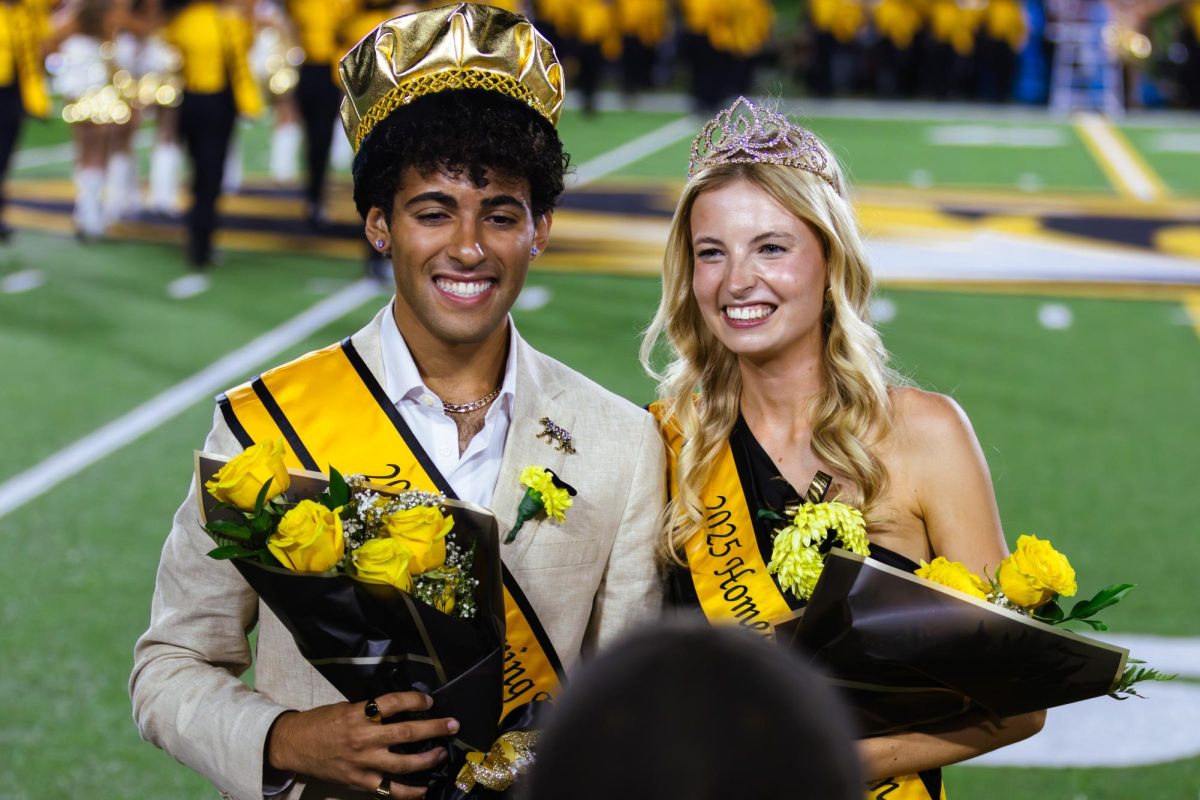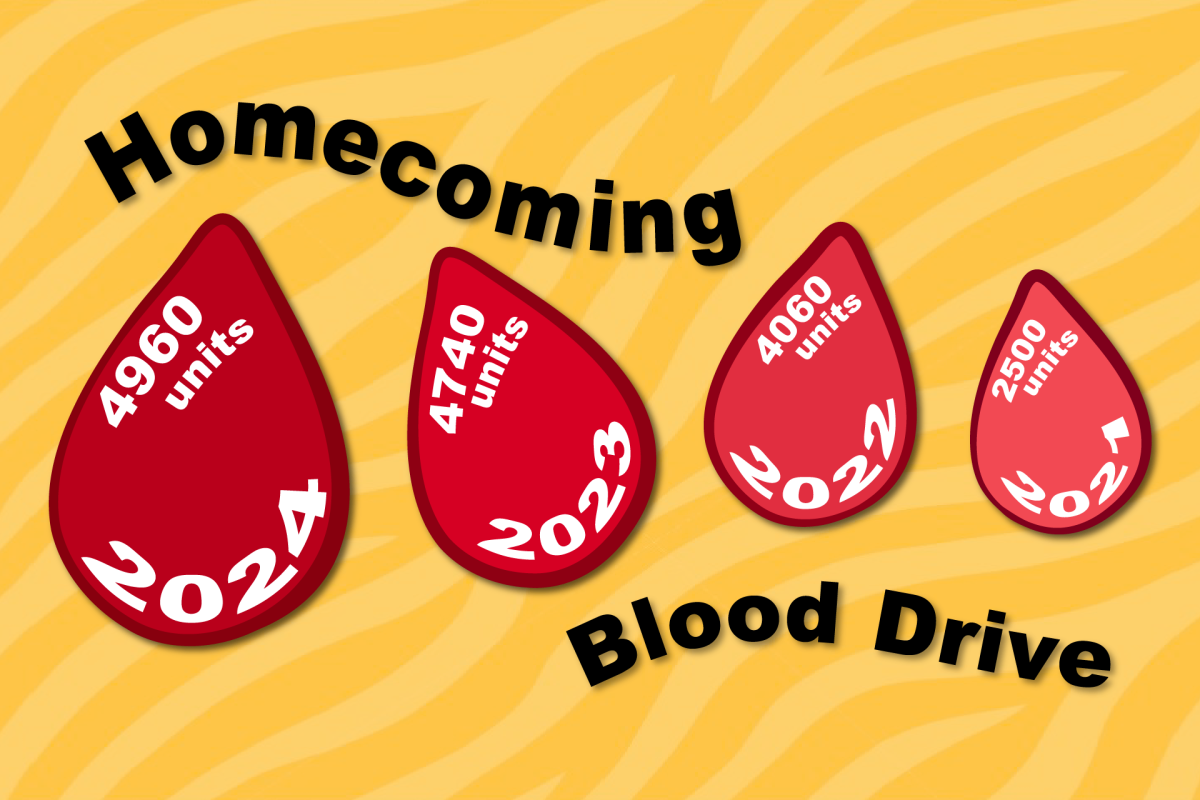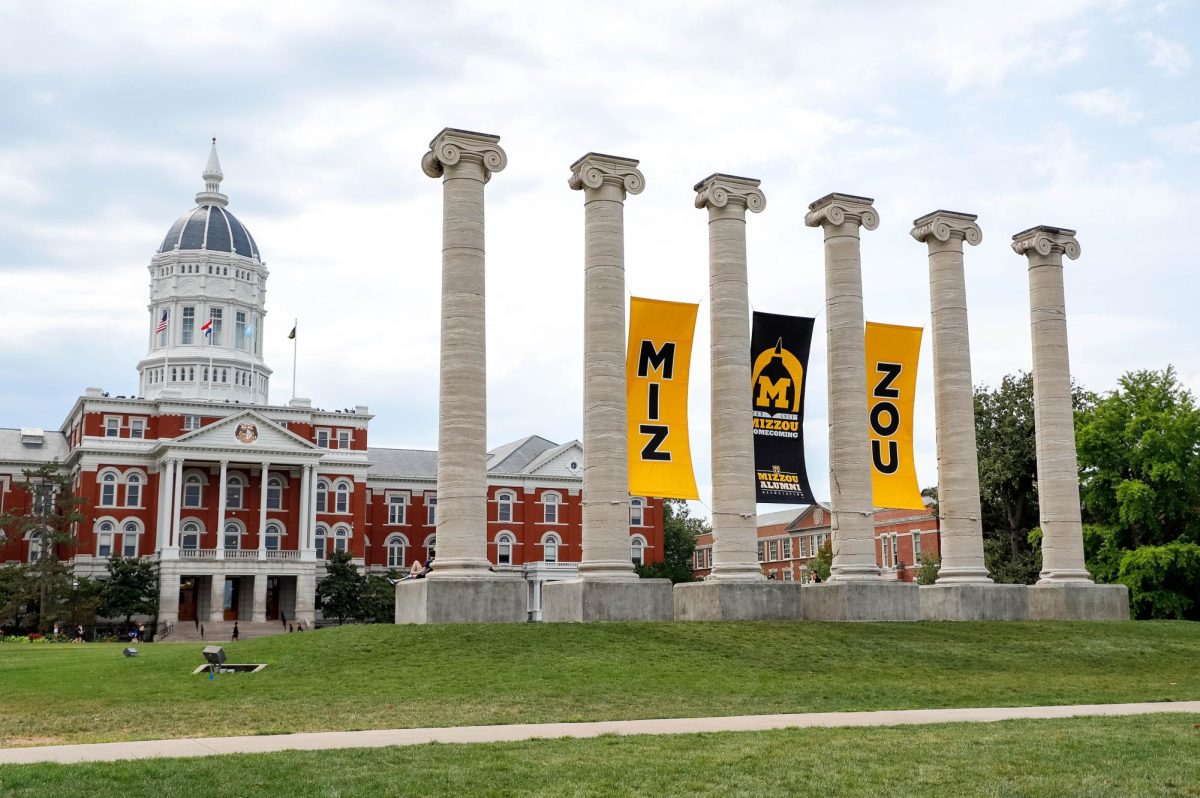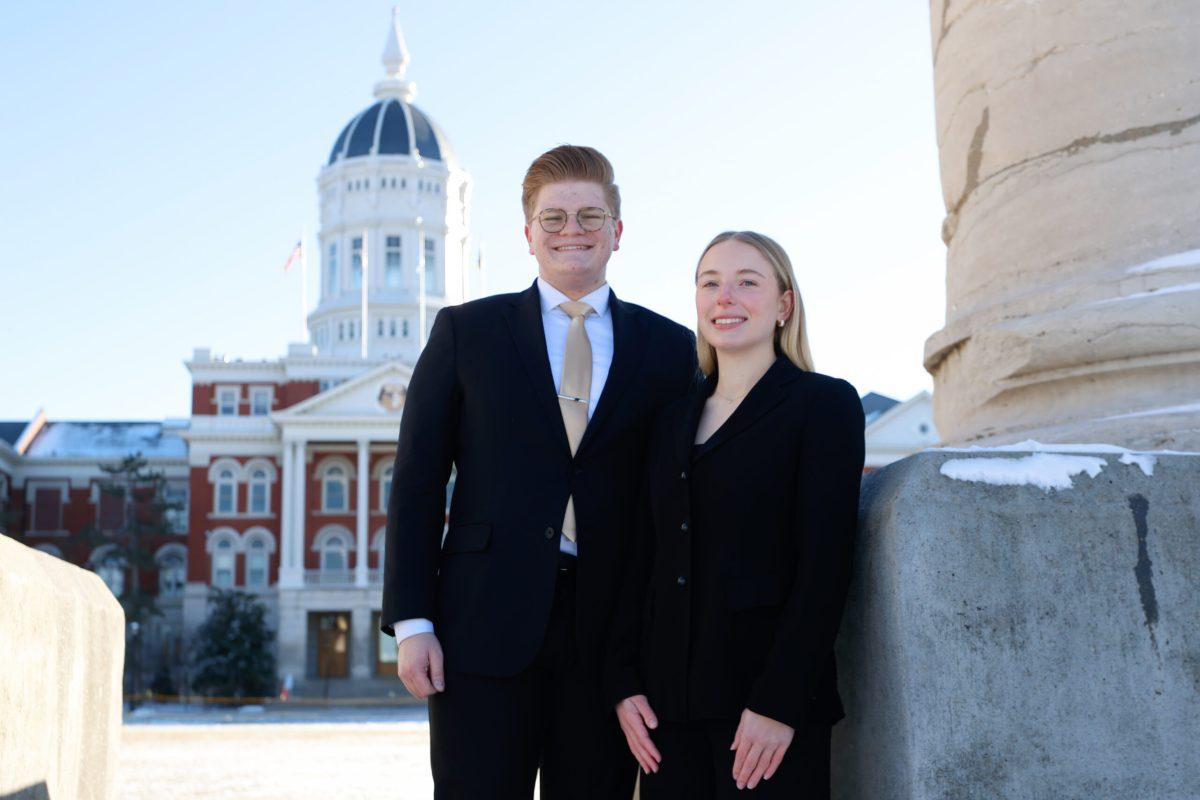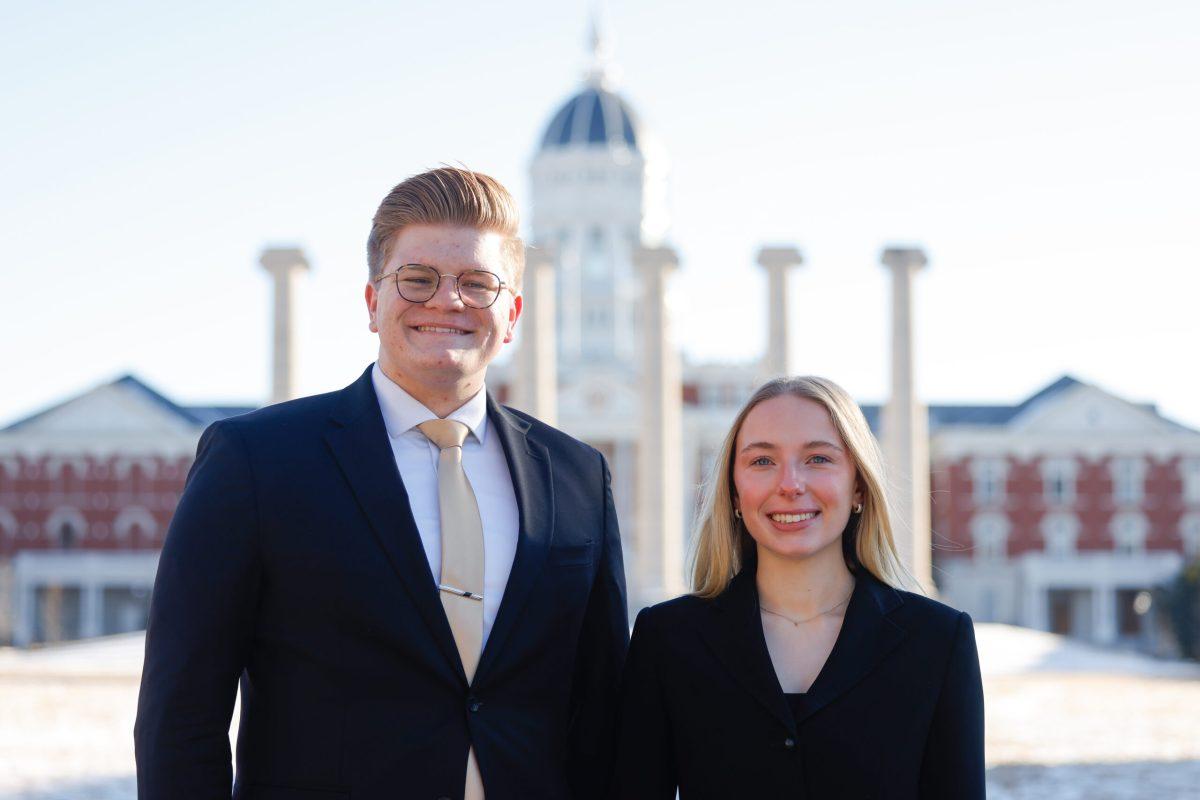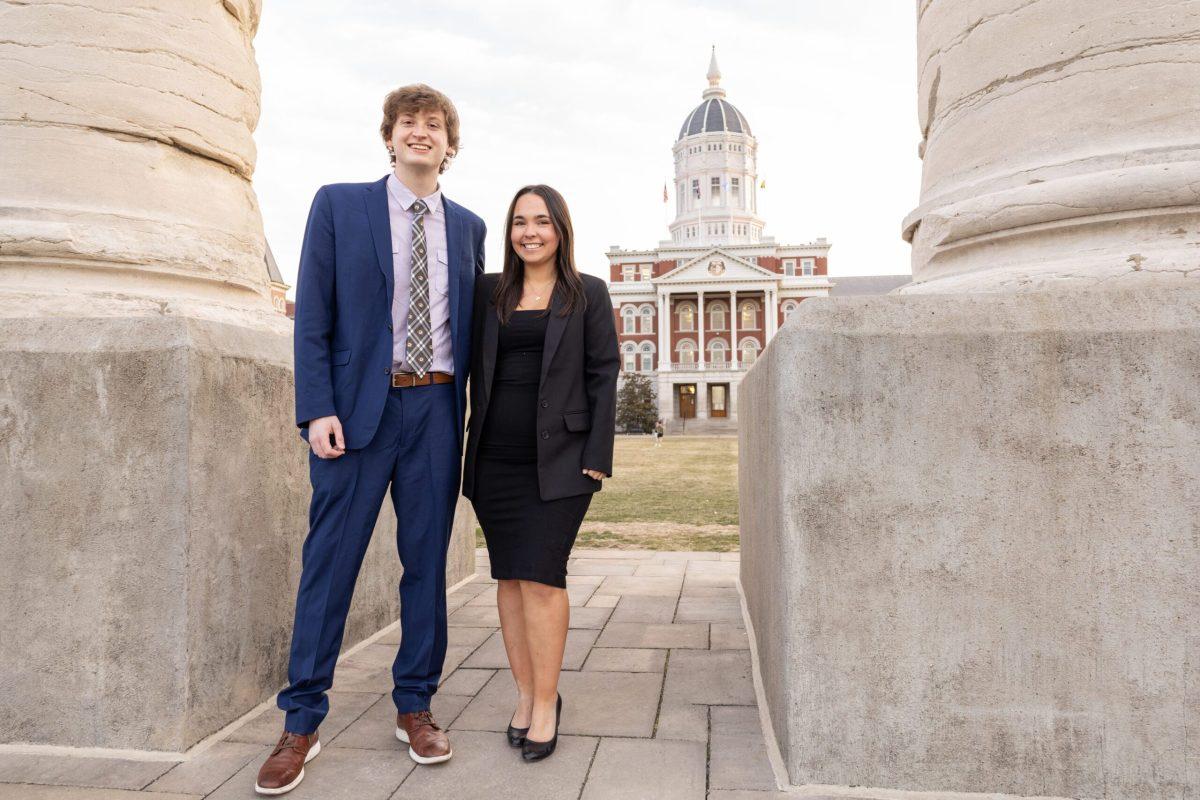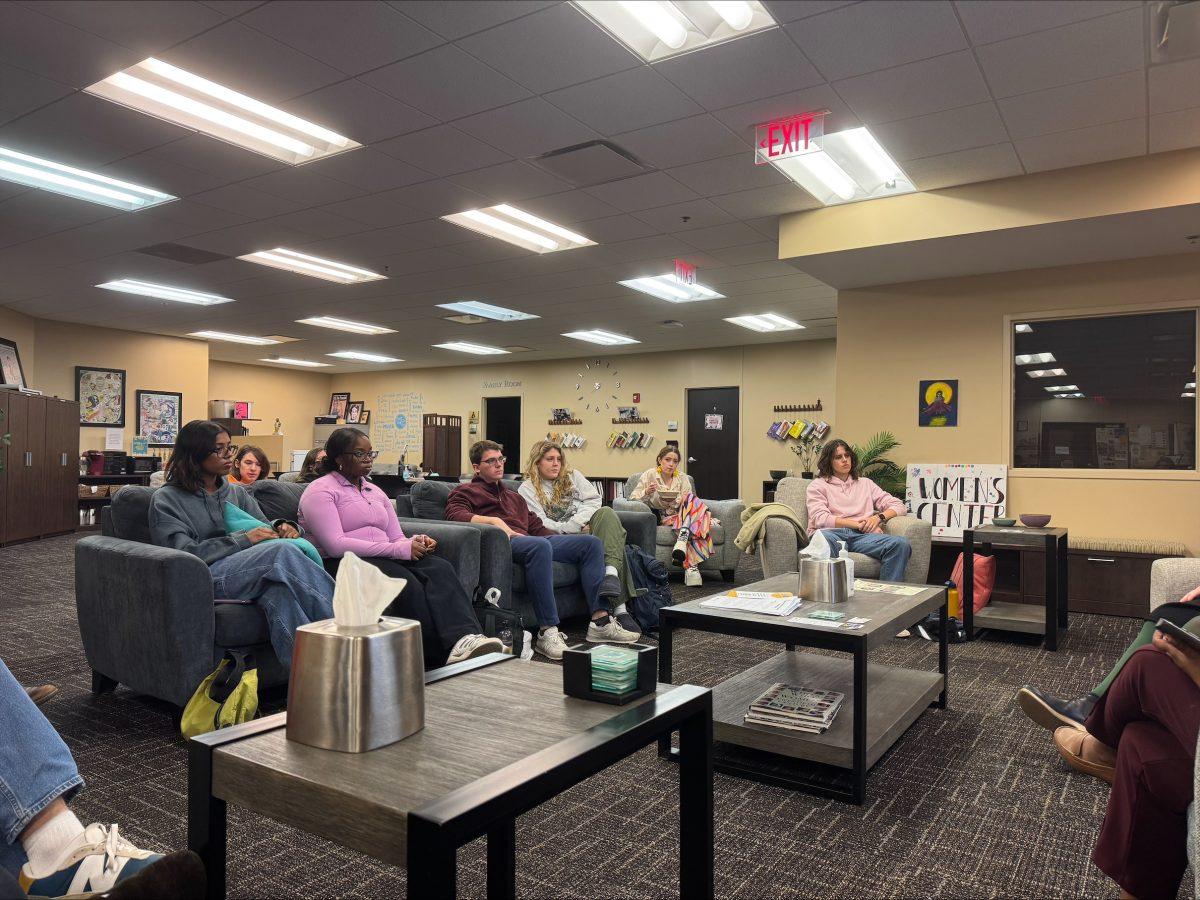All election results, victory margins and ballot language sourced from The Associated Press as of 10 p.m. CST on Nov. 12, 2022.
Missouri voted on U.S. one senator, eight U.S. representatives and a number of proposed amendments, including the legalization of recreational marijuana usage.
An estimated 2 million Missouri residents cast their vote. Voters aged 18-29 saw great turnout this year, the second-highest in the last three decades. The demographic voted overwhelmingly Democratic.
MU’s top feeder states—Illinois, Texas and Kansas all elected members of Congress and voted on legislation. The results in those states, along with Missouri, have all been finalized.
The Senate
The Democratic Party retains control of the U.S. Senate.
All of the aforementioned states have elected new members of Congress.
In the race for former Missouri Sen. Roy Blunt’s seat in the U.S. Senate, Republican Eric Schmitt defeated Democrat Trudy Busch Valentine, 55.5% to 42%.
Blunt, who served as U.S. senator since 2011, announced he would not run for reelection in March. Schmitt will join Republican incumbent Josh Hawley in the Senate in January.
Following his win, Schmitt spoke to supporters gathered in St. Louis County in a victory speech.
“The Biden administration’s unchecked assault on our jobs, on our families, on our liberties, on our values must end,” Schmitt said.
Illinois and Kansas both reelected their respective incumbents to the Senate.
In Illinois, Democratic incumbent Tammy Duckworth defeated Republican Kathy Salvi with 56% of the vote. Duckworth has been serving Illinois since 2017 alongside Democratic Senator Dick Durbin.
Kansas Republican Jerry Moran defeated Democrat Mark Holland with 60.4% of the vote.
The AP declared the final Senate race on Nov. 12 at around 8 p.m. Nevada Democrat Catherine Cortez Masto defeated Republican Adam Laxalt with a lead of about 5,000 votes. Masto’s victory assures a Democratic Senate majority of at least 50-49 for the next two years.
The Georgia race between Democrat Raphael Warnock and Republican Herschel Walker will determine the exact party split of the U.S. Senate. The candidates will head to a runoff election on Dec. 6 as neither candidate garnered 50% or more of the vote. Warnock currently leads the election with 49.4% of the vote.
The same runoff scenario occurred in Georgia during the 2020 general election in both of the state’s Senate races.
The House of Representatives
Of the eight districts in Missouri, six voted for Republican representatives, including the 3rd and 4th districts, which represent Boone County. The remaining districts, representing St. Louis and Kansas City, voted for Democratic representatives.
Of the 17 districts in Illinois, Republicans only won three seats, and Democrats won the remaining 14.
According to a FiveThirtyEight projection map, recent redistricting changes in the state appear to have given an advantage to the Democratic party in Illinois.
In Texas, Republicans won the majority of the 38 seats up for reelection, with Democrats winning 13 seats and Republicans winning the remaining 25.
Voters in Kansas primarily voted red, with three of the four seats going to Republicans.
If the Republican Party flips control of the House, Nancy Pelosi, D-Calif., will lose her role as Speaker of the House, and the Democratic Party could lose considerable control of committees. According to the AP, current investigations into the Jan. 6 capital insurrection and former President Donald Trump could be stalled further or dissolved completely.
Ballot Measures
Missourians voted on five ballot measures Tuesday, four proposing amendments to the Missouri Constitution and a fifth addressing a potential constitutional convention.
Amendment 1 did not pass. It would have allowed the state treasurer to invest in highly rated municipal bonds and securities, while letting the legislature further expand the treasurer’s investment options. Fifty-four percent of voters voted against the measure.
Voters approved Amendment 3, which legalizes marijuana use by adults age 21 and older and sets a 6% sales tax on marijuana sales. The amendment passed 53% to 47%.
The amendment allows individuals to petition for release from prison or parole, as well as expungement of their arrest and conviction records of nonviolent marijuana offenses, except for driving under the influence and sales to minors.
The amendment allows the state to continue capping the number of licenses granted to grow, transport and sell marijuana, while refining the regulations for the transportation, marketing, advertising and personal ownership of marijuana.
Amendment 4, which allows the legislature to increase the mandatory minimum funding level for the Kansas City Police Department, passed with 63.2% of the vote.
According to the Kansas City mayor, Quintin Lucas, the creation of a state law to increase spending for a single city is unconstitutional.
Missouri Rep. Blaine Luetkemeyer believes the state law is necessary to ensure public safety and protection among the community.
“Amendment 4 will ensure stability and give the officers of the KCPD the resources they need to keep our community safe, and in turn, contribute to economic prosperity across the entire state of Missouri,” Luetkemeyer said.
Amendment 5, which proposed the creation of the Missouri Department of the National Guard within the state Executive branch, passed with 60.2% of the vote. The amendment elevates the National Guard to a cabinet-level state entity instead of its previous classification as a division within the Department of Public Safety.
The National Guard in Missouri will become its own department, with no bureaucratic oversight except that of the governor’s office. An adjutant general would be appointed to the governor’s cabinet, with the state Senate’s consent and advice.
The amendment seeks to establish a more direct line of communication between the state’s executive branch and the Guard in case of emergency.
The House of Representatives voted to pass this amendment 126-2. The Missouri Senate unanimously voted in favor of the Amendment.
The final ballot measure, a proposal to call a constitutional convention, did not pass, with 67.7% of voters voting against it.
The last time a convention was proposed in 2002, voters rejected the proposal 65.5% to 34.5%.
For more information on the 2022 ballot measures, visit our Voter’s Guide.
Edited by Emma Flannery | [email protected]
Copy edited by Grace Knight and Jacob Richey




